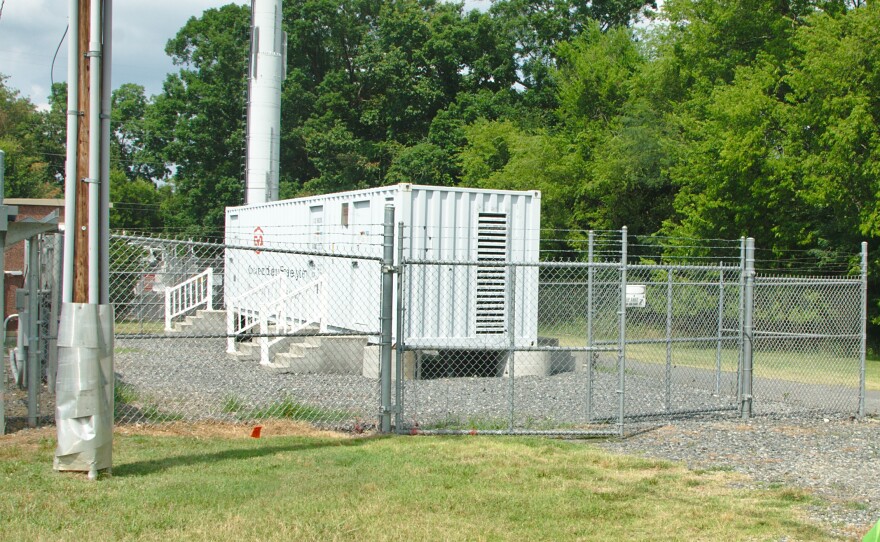For years, utilities have been testing large-scale batteries to store electricity, especially from wind and solar power. Now Duke Energy is ready to bet on the technology, with plans to spend a half-billion dollars on batteries over the next 15 years in the Carolinas.
These batteries work just like the rechargeable ones in your flashlight, but they come in units the size of a shipping container. They store excess energy from the power grid or from wind or solar farms, then discharge it as needed.
The technology isn't new, but it's now at a point where it makes business sense on a large scale, said Duke Energy spokesman Randy Wheeless.
"Duke Energy's probably got 10 years' experience doing battery research and small pilot projects around the nation," Wheeless said. "But now the battery prices have gotten cheaper, and there are actually good applications for them in North Carolina. And that's made us go ahead and make this big commitment."
Batteries are a key part of Duke's latest 15-year Integrated Resource Plan, submitted to regulators in September.
Besides storing renewable energy, they also can help improve reliability during outages and provide power in areas hard to reach with conventional power lines.
Another benefit: Batteries could delay the need for new facilities.
"If you install enough battery capacity and use it in the right way, it could potentially avoid building that next natural gas power plant. (Or, a) completely different application: You can defer or displace transmission lines."
He says Duke's plan for at least 300 megawatts of battery storage in the Carolinas over the next 15 years equals the generating capacity of a small gas-fired plant.
Johnson is finishing up a report on battery storage for the North Carolina General Assembly, due in December. That report was part of renewable energy legislation that passed last year, House Bill 589.
Duke currently has only about two megawatts of battery storage in the Carolinas, but has several projects in the works for western North Carolina.
A solar-and-battery setup now powers a communications tower in the Great Smoky Mountains National Park. Another planned project will help regulate power at an Asheville substation.
And Duke is seeking regulatory approval for a solar installation with batteries in remote Hot Springs, in Madison County. Permission for that project could come in a few months.






